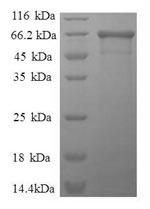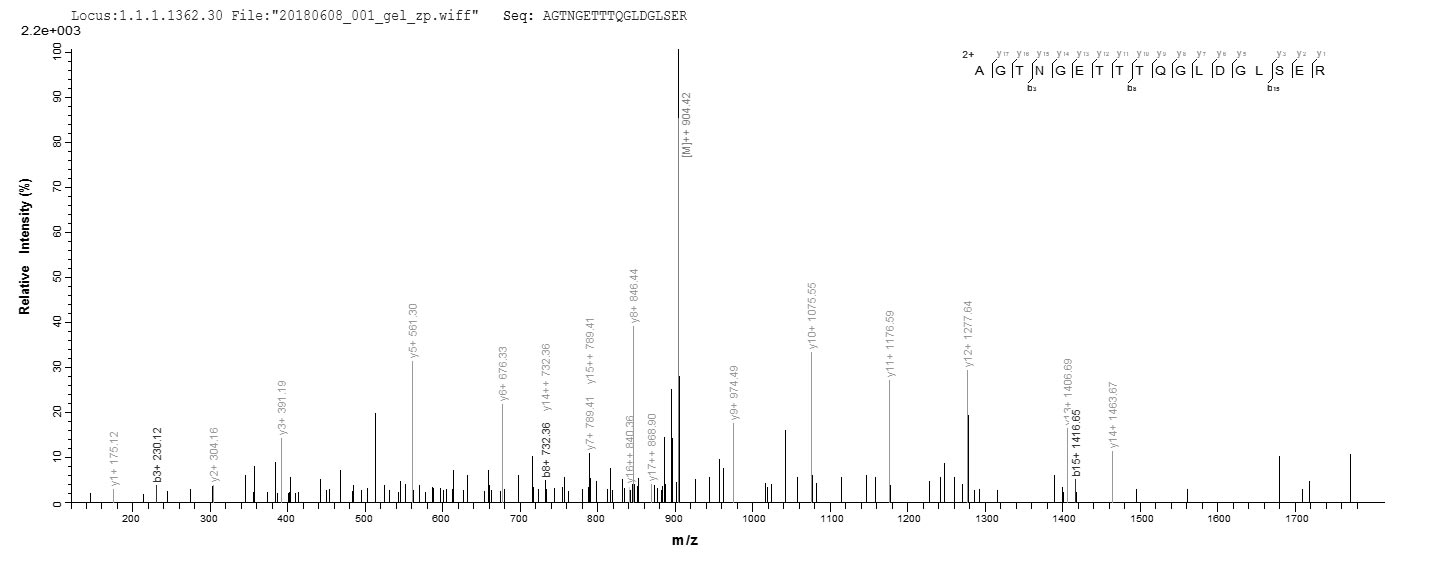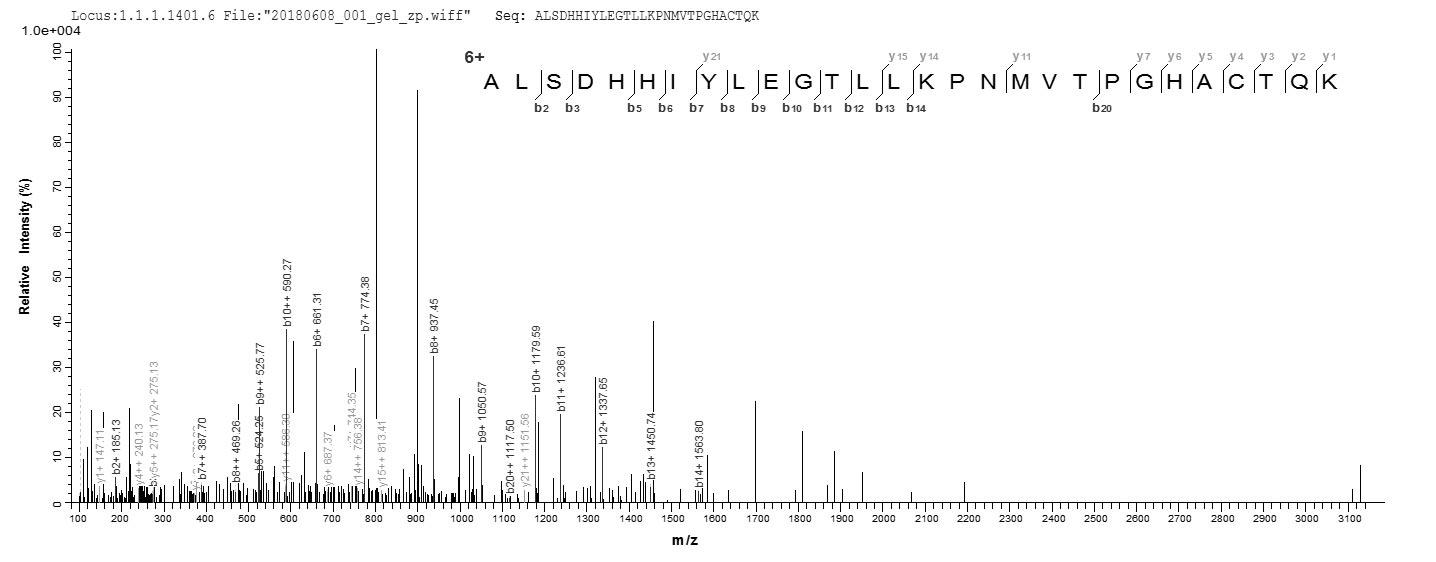Enhance your metabolic research with our Recombinant Human ALDOA protein, a crucial enzyme involved in glycolysis and gluconeogenesis. Fructose-bisphosphate aldolase A, encoded by the ALDOA gene, plays a vital role in energy production within cells by catalyzing the reversible cleavage of fructose-1,6-bisphosphate to dihydroxyacetone phosphate and glyceraldehyde-3-phosphate. This protein is also identified as a lung cancer antigen, NY-LU-1, making it relevant for cancer research.
Our Recombinant Human ALDOA protein is expressed in an E.coli system and encompasses the full length of the mature protein, covering the 2-364aa region. The N-terminal GST-tag allows for effective protein purification, ensuring a high-quality product for your experiments. With a purity greater than 90% as confirmed by SDS-PAGE, this full-length ALDOA protein delivers the reliability you need. Select either liquid or lyophilized powder form to suit your specific laboratory requirements and propel your research forward.








